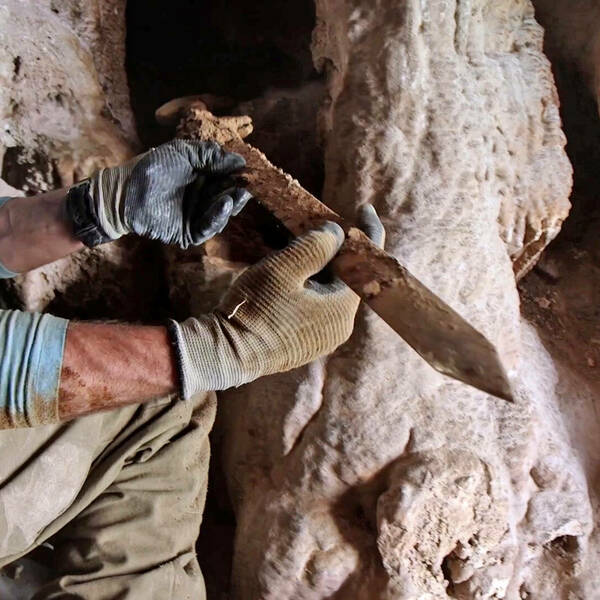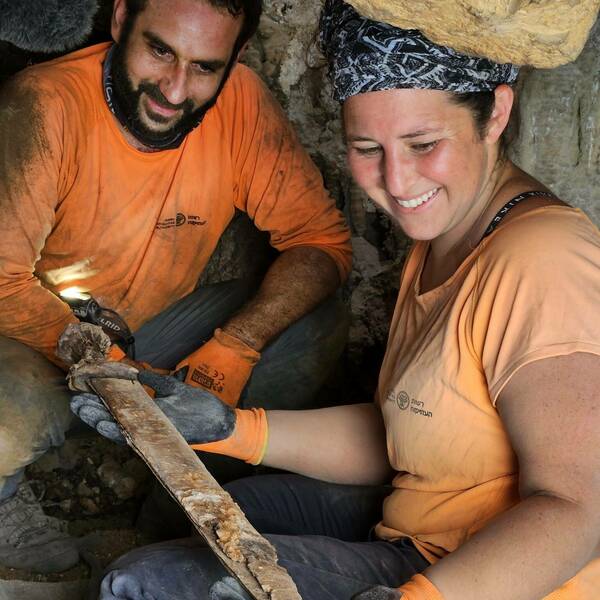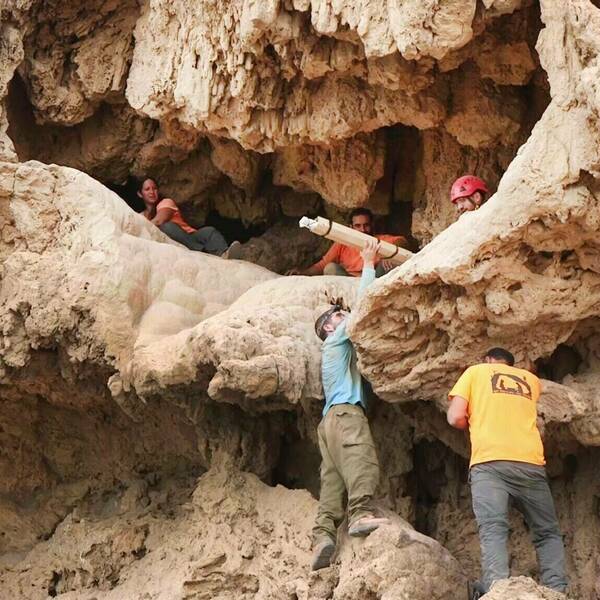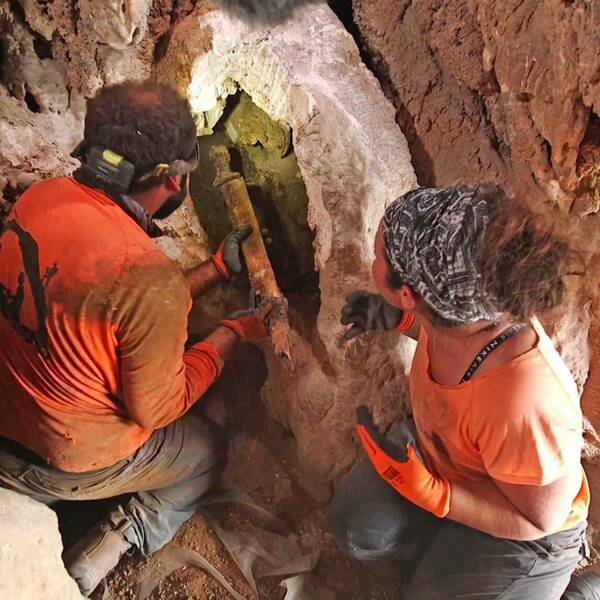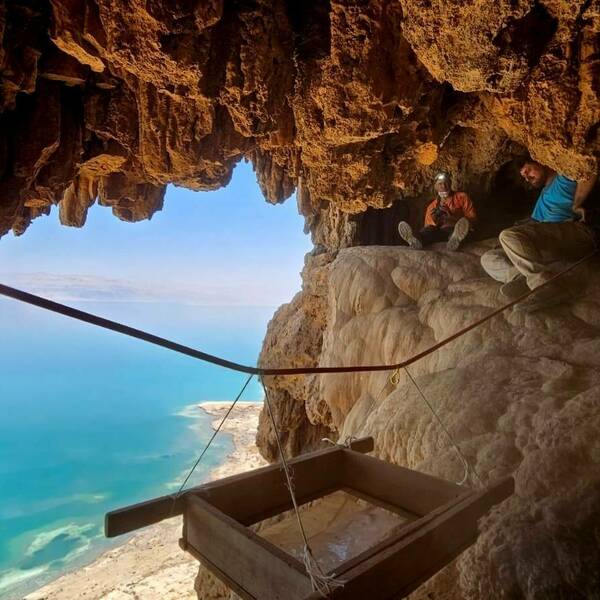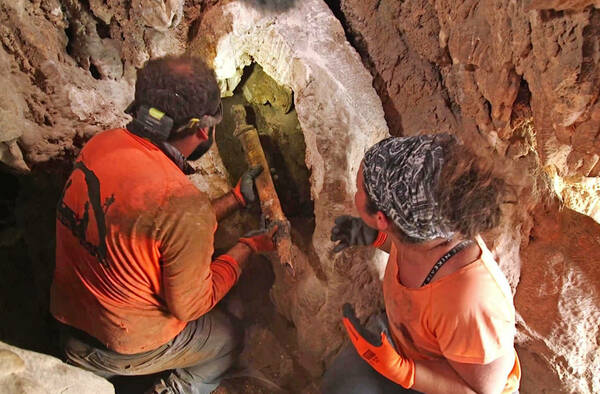
Four remarkably well-preserved Roman swords, dating back nearly 2,000 years, have been unearthed in a cave near the Dead Sea, announced the Israel Antiquities Authority. Hidden behind stalactites in the Desert of Jericho, these swords, complete with scabbards, guards, and handles, offer an extraordinary glimpse into the past.
The discovery occurred in June within Israel's En Gedi Nature Reserve, an area rich in caves with a history spanning over 10,000 years. Researchers from Ariel University and Hebrew University were initially drawn to the cave to document an ancient inscription. Still, they stumbled upon the swords when they noticed an iron point and pieces of worked wood. The Israel Antiquities Authority's Judean Desert Survey Project subsequently returned to the site and located the swords in an unexplored section of the cave.
The swords, possibly dating from the 1st to the 3rd century A.D., include three Roman spathas, double-edged longswords used by both cavalry and infantry, and one with a unique metal ring pommel. These weapons provide valuable insights into the tumultuous times when Roman troops clashed with Jewish rebels in the region. While the Bar Kokhba revolt of 132 to 136 A.D. is a candidate for the event that led to the swords' concealment, other historical events are also plausible.
Radiocarbon dating results are pending, but the exceptional preservation of these swords offers a rare opportunity to study ancient technology. Experts plan to analyze the wood and leather to determine their origins and employ CT scans and X-rays to examine construction details. This discovery promises to shed light on the manufacturing techniques of swords in the Eastern Roman Empire, a lesser-known aspect of Roman history.
For researchers in Israel, this is just the beginning of a multi-year study to unravel the cave's secrets and the swords' history. The find underscores the importance of preserving archaeological sites across the region, as looters could have deprived us of this remarkable historical knowledge.
